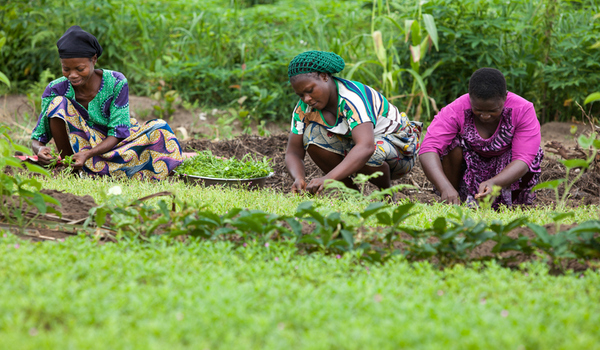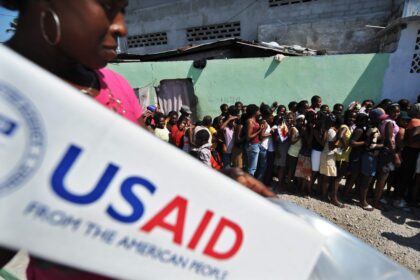In a bid to tackle the growing challenges of climate change and ensure food security, the Federal Capital Territory (FCT) has empowered 9,170 farmers with agricultural inputs as part of the FCT Fadama CARES program. The initiative, which aligns with the FCT’s commitment to boosting agricultural productivity, offers a lifeline to farmers grappling with the devastating effects of climate change on food production.
Mariya Mahmoud, the FCT Minister of State, made this announcement during the distribution of grants to the fourth batch of 6,020 beneficiaries in Gwagwalada. The support extended to farmers included a variety of essential agricultural resources aimed at enhancing productivity across the region. These inputs ranged from fertilisers, seeds, agrochemicals, sprayers, and personal protective equipment for crop farmers, to day-old chicks and feed for poultry farmers. Additionally, fish farmers received juvenile fish and feed, while livestock farmers were provided with goats. Women involved in agricultural processing were not left out, as grinding machines were distributed to aid their businesses.
This latest distribution follows a third phase held in December 2023, which saw 3,150 farmers, primarily engaged in dry-season farming, benefit from the program. In total, 9,170 farmers have been reached within one year, representing a 216 percent increase compared to the previous two years before the Tinubu administration took office. Mahmoud highlighted this achievement as a direct reflection of President Tinubu’s Renewed Hope Agenda, which emphasizes sustainable food production and agricultural development as pillars of the administration’s strategy to combat poverty and improve livelihoods.
“The FCT Fadama CARES initiative is an essential part of our efforts to strengthen food security in the FCT,” Mahmoud stated. “It not only sustains the food supply chain but also improves the livelihoods of poor and vulnerable populations involved in the agricultural value chain. We are particularly focused on supporting women and unemployed youth, who are disproportionately affected by poverty and lack of opportunities in rural areas.”
The FCT Fadama CARES program, supported by the World Bank’s Nigeria COVID-19 Action Recovery and Economic Stimulus (NG-CARES), aims to build resilience among farmers and ensure food production remains sustainable amidst rising climate change impacts. The empowerment of farmers through this initiative is seen as a critical step in mitigating the effects of erratic weather patterns, which have made farming more unpredictable and threatened food security.
In her address, Mahmoud praised the leadership of the FCT administration, headed by Nyesom Wike, for prioritizing agricultural development. She noted that the allocation of resources to the agriculture sector is vital for poverty reduction, especially among vulnerable farming households who depend on agriculture for their survival.
As part of the broader goals of the Fadama CARES program, Mahmoud also revealed that the FCTA’s Agriculture and Rural Development Secretariat was utilizing the initiative to provide starter packs to 94 trainees from the FCT-Leventis Foundation School of Agriculture, Yaba, for the years 2022 and 2023. This move forms part of the youth empowerment component of the program, designed to equip young people with the skills and resources needed to apply their agricultural training.
Lawan Geidam, Mandate Secretary of the Agriculture and Rural Development Secretariat, explained that the fourth batch of beneficiaries was selected from 82 farming community associations across the six area councils of the FCT. The distributed inputs included 12,436 bags of NPK fertilizer, 6,218 bags of Urea fertilizer, 18,654 litres of agrochemicals, and 43,526 kilograms of assorted seeds, under the Disbursement Linked Indicator (DLI) 2.1. Poultry farmers received 55,400 day-old chicks and 7,756 bags of feed, while 81,800 juvenile catfish and 2,045 bags of fish feed were given to fish farmers.
In addition to these inputs, 3,690 goats and 3,212 sets of farm assets, including sprayers, protective equipment, and water pumps, were provided under DLI 2.3. Furthermore, 1,006 grinding machines and 22 units of multipurpose threshers were distributed to support women involved in agricultural processing. Water and sanitation facilities were also installed in 10 wet markets across the six area councils to improve hygienic conditions.
The FCT Fadama CARES program is a strategic response to the escalating food insecurity brought about by climate change. By empowering thousands of farmers with the tools and resources they need, the FCT is fostering resilience within the agricultural sector, ensuring that the region’s food production remains robust and sustainable despite environmental challenges.




